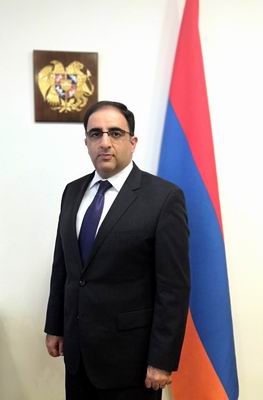The Economic and Social Council, in its resolution 1991/49, enlarged the membership of the Commission from 40 to 53 members, with the following distribution of seats among the regional groups:
(a) Eleven for African States;
(b) Eleven for Asian States;
(c) Ten for Latin American and Caribbean States;
(d) Six for Eastern European States;
(e) Fourteen for Western European and other States;
(f) One seat to rotate between the Asian, and the Latin American and Caribbean States every four years.
In accordance with Council resolution 845 (XXXII), and 1147 (XLI), members are elected (a) from among the States Members of the United Nations and members of the specialized agencies and the Parties to the Single Convention on Narcotic Drugs, 1961, (b) with due regard to the adequate representation of countries that are important producers of opium or coca leaves, of countries that are important in the field of the manufacture of narcotic drugs, and of countries in which drug addiction or the illicit traffic in narcotic drugs constitutes an important problem and (c) taking into account the principle of equitable geographical distribution.
In order to function effectively, the Commission needs to organize and prepare its work carefully and in advance. Such tasks are carried out by the Bureau and the Extended Bureau of the Commission, which play an active role in the preparation of the regular and the inter-sessional meetings with the assistance of the Secretariat.
The Bureau of the Commission is composed of the Chairperson, three Vice-Chairpersons and one Rapporteur. At the end of its reconvened session, the Commission elects its Bureau for the next session. The Extended Bureau also includes the Chairpersons of the five regional groups, the European Union and the Group of 77 and China.
H.E. Peter POTMAN of the Netherlands (Group of Western European and Other States)
H.E. Maria Eugenia ECHEVERRIA HERRERA of Peru (Group of Latin American and Caribbean States)
Mr. Vikram Jeet DUGGAL of India (Group of Asia Pacific States)

Education
2000 Fletcher School of Law and Diplomacy, Boston, USA
1998-2001 PhD studies, Faculty of Oriental Studies, Yerevan State University
1996-1997 Department of Arabic Language and Literature, University of Cairo, Egypt
1993-1998 Department of Arabic Studies, Faculty of Oriental Studies, Yerevan State University
Work experience
March 2025 Appointed as Ambassador Extraordinary and Plenipotentiary of the Republic of Armenia to the Slovak Republic
October 2024 Appointed as Ambassador Extraordinary and Plenipotentiary of the Republic of Armenia to the Republic of Austria
2023-2024 Member of the Consultative Group of the Human Rights Council
2022 Vice President of the Human Rights Council of the United Nations
2019-2024 Ambassador Extraordinary and Plenipotentiary of the Republic of Armenia to the Swiss Confederation (residence in Geneva)
2019-2024 Permanent Representative of the Republic of Armenia to the UN Office and other international organizations in Geneva
2014-2019 Advisor to the Minister of Foreign Affairs
2012-2014 Deputy Chief of Mission, Counsellor, Embassy of Armenia to the USA, Washington
2010-2012 Head of the OSCE Section, Ministry of Foreign Affairs of the Republic of Armenia (MFA RA)
2009-2010 First Secretary, Council of Europe Division, MFA RA
2006-2009 Second Secretary, Permanent Mission of Armenia to the OSCE, Vienna
2004-2006 Third Secretary, Arms Control and International Security Department, MFA RA
2000-2004 Attaché, Embassy of Armenia to Syria, Damascus
1999-2000 Attaché, Information and Public Affairs Department, MFA RA
Diplomatic rank
Ambassador Extraordinary and Plenipotentiary
Academic degree
Ph.D. in history, Yerevan State University
Languages
Armenian, English, Russian, Arabic